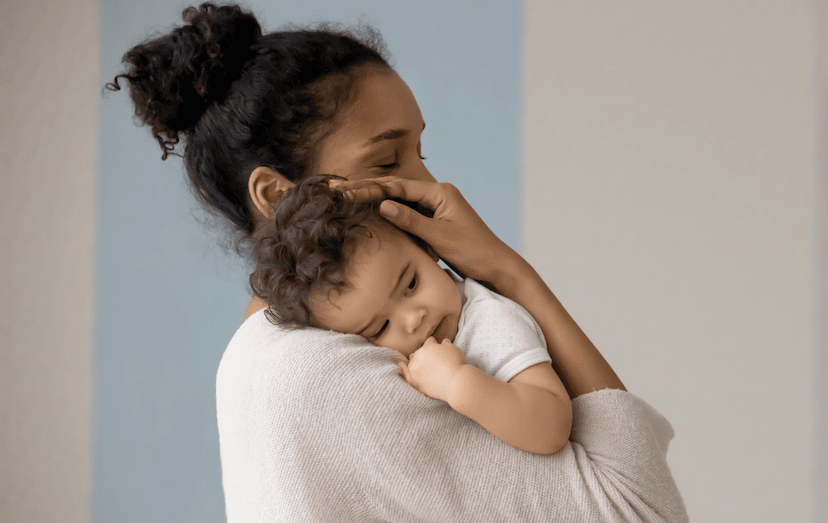Your baby has completed their first year and started their second one which is a huge milestone as they move rapidly from being an infant to a toddler. It is the most exciting time when you watch your little one start to be more independent and start communicating more with you and their surroundings, develop their own habits and behaviours and turn your home into a big playing space.
Your 1 year old baby would start developing rapidly between the ages of 12 and 18 months. Although children develop different skills such as walking, speaking, interacting and showing social behaviors at different age points, there are some common milestones that children usually reach in this age group that can be considered a guide to child development.
Things Your 1-year-old Baby Can Now Do:
Crawl
Refer to things by pointing
Pull themselves up unaided
Walk around the house holding on to furniture
Start trying to walk
Sounding simple words such as (ma), (ba), (na)
Over the next six months, you will notice your baby's physical, emotional, behavioral and social development through key signs that children generally go through at this age.
1-year-old Baby Physical Development Milestones:
As they progress through their second year, your 1 year old baby will start showing independence and begin to express their curiosity to explore and learn about their surroundings. By this point you will need to be careful of what you keep within your toddler’s reach. Babyproofing your home is crucial and moving all decorative items that you keep around the house out of their reach would be a good idea as your baby moves around more. At this age your little one will show physical development such as:
Walking alone
Climbing stairs
Helping undress
Pulling toys while walking
Running
Kicking a ball
Baby Height and Weight after 1 Year (12 months):
When it comes to your 1 year old baby’s weight and height, you will notice a less noticeable increase as opposed to what was normal during the first year. As an infant, your baby gains in four months what they would probably gain during the entire second year. And this is entirely normal.
1-year-old Baby Food and Diet:
You will notice, after your baby’s first birthday, a drop in his or her appetite. It might become difficult to get them to finish their meal or eat the food you give them.
If you aren’t sure what your 1 year old baby food should be, keep in mind that babies at this age need foods from the same basic nutrition groups that we do as adults.3 If you offer your child a variety of foods from the basic food groups and allow them to experiment with the different tastes, colors and textures, you can rest assured that they are eating a well-balanced diet that contains the nutrients that they need.
1-year-old Baby Emotional and Social Milestones:
You will notice your 1 year old babies emotional development indicated through their behaviors when interacting with different situations such as:
Being nervous in the presence of strangers, and showing affection to familiar people and caregivers
Showing interest in things by pointing and gesturing
Clinging to the person who is taking care of them when going through certain experiences such as meeting strangers and being in new places
Desire to explore and wander alone with one of the parents around
Expressing the desire to play with people by handing them toys
Throwing tantrums and screaming to get attention
1-year-old Baby Verbal development:
While each baby is different in developing speech skills, there are some common milestones for this age group that would allow you to follow up with the development of your 1 year old baby:
A child between 12 and 18 months can imitate sounds such as the sounds of animals
A child between 12 and 18 months can have a vocabulary of between 4 and 6 words
At the age of 18 months, a child can have a vocabulary of between 10 and 15 words
1-year-old Baby Cognitive Development:
At this age, your baby will be able to distinguish between items around them and how to use them. They will also begin to be able to imitate actions that they see in their surroundings which is why you will need to be careful and aware, more than ever, to what you do and say around your baby.
Some key points you can note include:
At this age your baby will become familiar with objects and try to use them, like pretending to talk on the phone or using a hairbrush
Treats their dolls and stuffed animals similar to the way you take care of them. They would try for example feeding it or putting it to sleep
Knows and refer to body parts
Scribble on their own
Understand simple verbs and commands without gesturing. They would sit, for instance, when you say sit
When should you be concerned about your baby’s development?
Keep in mind that children do not develop the same skills at the same time. However keep your doctor in the loop if you have any concerns about your baby’s development and look out for things like:
Your baby is 18 months old and hasn’t started walking
Your baby in not pointing at things
Your baby does not imitate the actions of others around them
Doesn't learn new words
Can't say at least six words
Doesn't notice either of their parents leaving the room and coming back
Loses skills that have been learned before
References:
Moms around the world trust JOHNSON’S® to care for their babies
We are committed to working with moms, healthcare experts and scientists to ensure our products continue achieving the highest standards in safety, quality and care.
